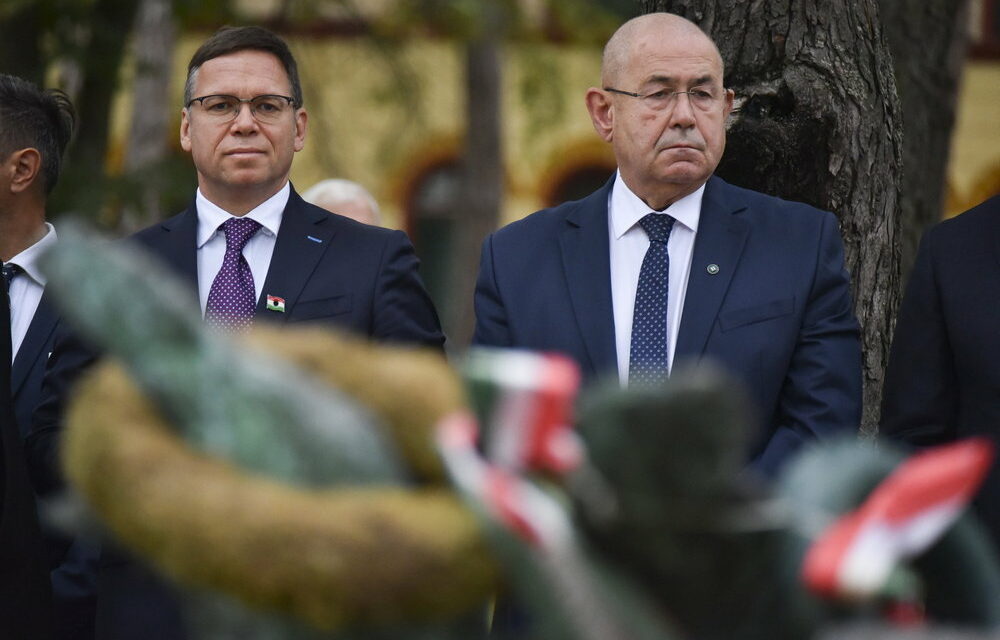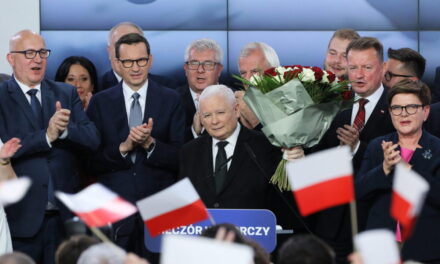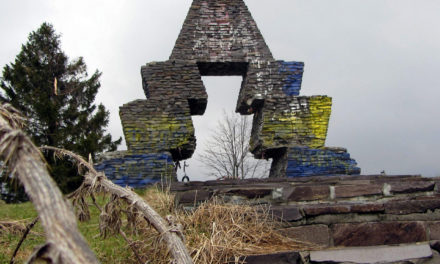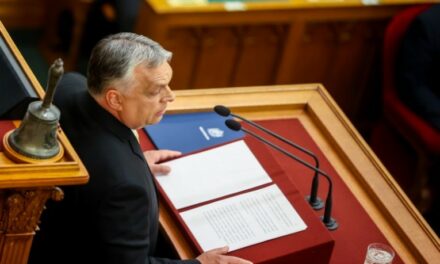For us, freedom is a force that preserves the nation, because Hungary is either free or it doesn't exist, and only a free Hungary can do for our communities across the border - stressed Balázs Fürjes, Parliamentary State Secretary of the Prime Minister's Office, in his celebratory speech on Saturday in Szabadka at the Vojvodina commemoration of the 66th anniversary of the 1956 Hungarian Revolution and Freedom Struggle central commemoration.
"If independent, free, independent Hungary is not ours as a lonely nation (.), then we will simply be lost," he added. He then continued:
"To be free means that we can be ourselves, that we live our own lives, that we are who we were and will be who we are, that we do not have to meet the expectations of others, that we ourselves decide about the things in our own lives".
"Under democratic conditions, Hungarians, of their own free will, authorize the national government to represent the program of freedom and prosperity. We have been authorized to do so. (.) For us, just like the freedom heroes of '56, Hungary and the entire Hungarian nation come first, because we live life in Hungarian, look at the world in Hungarian, and measure everything from a Hungarian point of view. If we stand up for our independence and sovereignty, we do it for Hungary and the entire nation. If we stand up for our legitimate rights in Brussels, we do so for Hungary and the entire nation. If we say no to the violent change of our country, customs and culture, we are doing it for Hungary and the entire nation," stressed Balázs Fürjes. He pointed out that Hungary can count on the government, which will protect the peace, security, freedom and unity of Hungarians across borders. "But this also requires everyone to do their own thing in their place," he emphasized.
1956 was an unprecedented gathering, unity and agreement of the nation
- explained Balázs Fürjes, who also touched on the fact that great things can only happen in national unity. "Unity and agreement give strength and enable action. (.) The more united we are in national affairs, the more likely we are to succeed in them. This unity and agreement also make the policy of cross-border national unification possible," he detailed. He also touched on the fact that this unity provides the basis for the protection of the self-identity and sovereignty of the Hungarians, and on the basis of this, the government can enforce national interests against the bureaucrats in Brussels.
István Pásztor , the president of the Vojvodina Hungarian Association (VMSZ), stated in his speech:
"Our community strength can be measured in how much blood loss we are able to endure without giving up, but preserving everything that is important to our Hungarianness".
He added: "We will keep the home in our homeland so that those who have experienced the current state and manifestations of Western freedom have a place to come home to." 1956 also showed that the Hungarians are capable of this, he stated.
"Those who stay will have to endure. You have to believe, work with clenched teeth, cherish the absence of those who have left, because this is the only way we can keep the nation and the community. I have said many times: the time will come when the trend will reverse, many, more and more of those who sought prosperity elsewhere will come back, (.) this process has started"
underlined the politician.
István Pásztor cited a study that said that if 176,000 people had not left Hungary in 1956, how much higher would the country's population be. The president of the VMSZ put it this way: "One of the findings of the cited study was that
how much more Hungarians would have been (.), if there was no '56, but if there was no '56, then there would be no nation today".
"In fact, 1956 was the only way to remain as a nation, along with all the blood loss and sacrifices. An entire country maintained itself by building on the lack: the strength of the concept of family was preserved in Hungarian minds by torn and destroyed families, the national flag, defaced with the symbol of autocracy, with the communist symbol removed from its center, with its mutilation, preserved from generation to generation the experience of self-determination and sovereignty cannot be given up," he continued.
According to the president of the largest Hungarian party in the south, in addition to commemoration, the nation's holidays also give people the opportunity to think about whether they interpret the events of the present correctly. He reminded that, as he said, "a war is taking place again in Europe with the support of those who otherwise measure Serbia with a double standard, and who considered sanctions an excellent solution even when we learned its consequences in such a way that we could have obtained a doctorate." Gas shortages, power outages, cold classrooms and factory halls, as well as hyperinflation are familiar to everyone in Vojvodina, he explained, then added: "We didn't realize that this would have caused the regime to collapse."
"At that time, we were still confused, asking each other, what are the sanctions if they don't bring results? Today, after more than twenty years, we can already guess that the overthrow of the regime was secondary. The primary goal was the maintenance of the crisis situation, hiding behind the screen of the ideal of freedom, and the complete economic exploitation of an underprivileged country. The current crisis, some elements of which are eerily similar to those that devastated this region, will bring serious changes to our lives as well. But I am convinced that if things are managed in this region along the lines of the politics of common sense, among these changes there will be positive ones," emphasized István Pásztor.
Before the ceremony, the politicians laid a wreath at the 1956 monument in Palic near Subotica.
MTI
Cover photo: István Pásztor, president of the Vojvodina Hungarian Association (VMSZ) (l) and Balázs Fürjes, Parliamentary State Secretary of the Prime Minister's Office, at the VMSZ's commemoration on the occasion of the 66th anniversary of the 1956 revolution and freedom struggle at the '56 monument in Palic's Nagypark on October 22, 2022.
MTI/Edvárd Molnár













